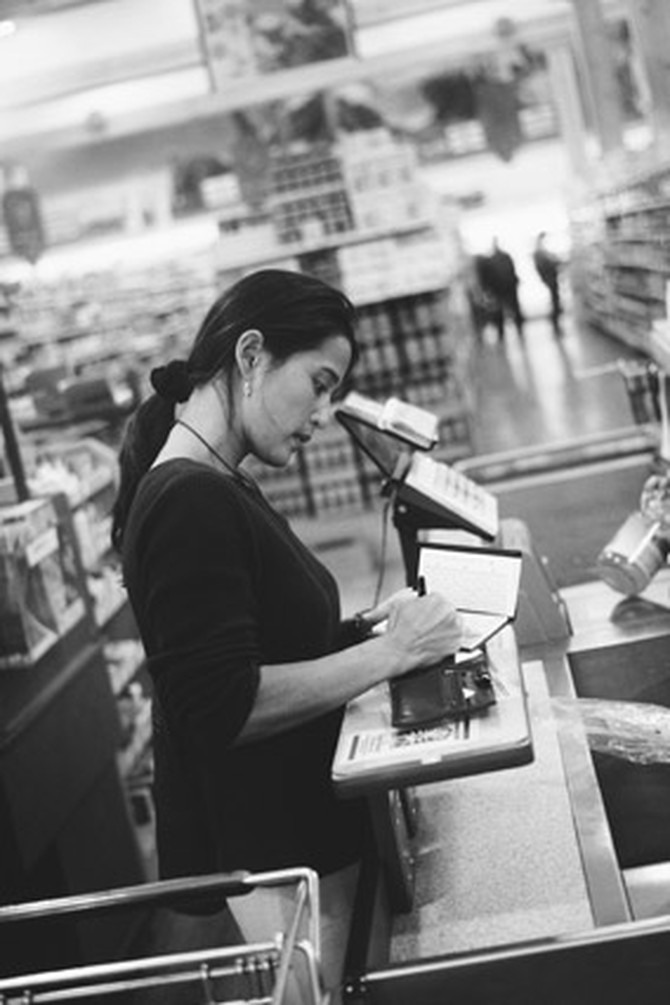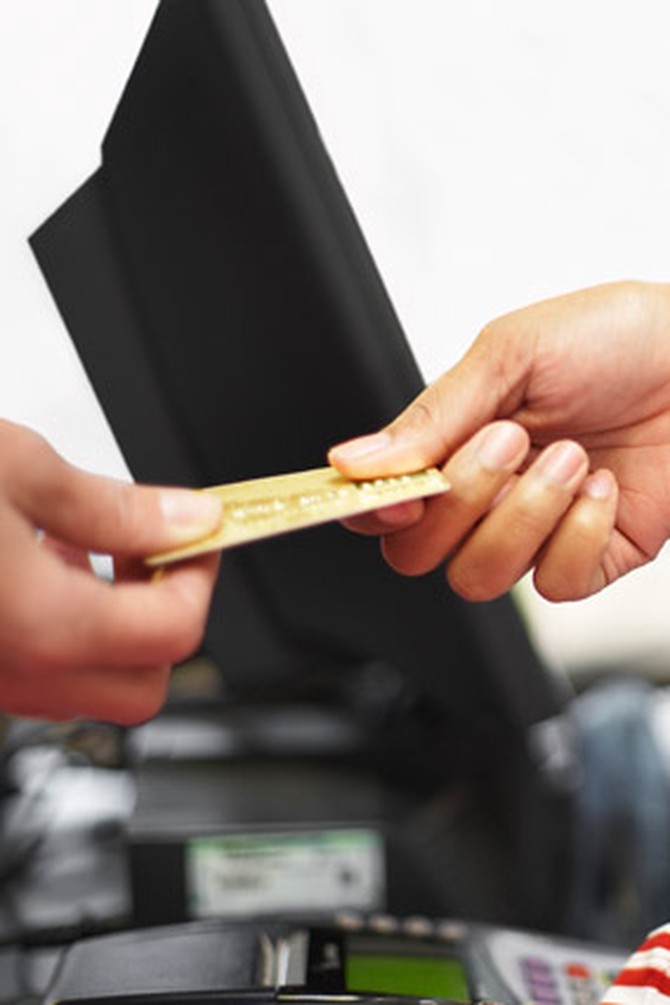Money Meltdowns You Need to Have (Only Once)
Nobody should ever, ever have to face a huge money disaster, like loss of a job or home. A small fiscal blunder, on the other hand, can teach you something—about what to do differently.
By Leigh Newman

Photos: Thinkstock
Eating for a week on the amount of your breakfast bill.
At the age of 27, I had managed to get a job, and an apartment and checking account, all of which gave me the mistaken idea that, fiscally speaking, I knew what I was doing. Then came that fateful week in October of 1998, when I ran into a few unexpected hiccups. I had faced much worse before (for example, the terrifying hospital bill I was forced to pay at age 23 for going to the emergency room without health insurance, or the time I was mugged and lost everything, including my passport); so, in comparison, these problems felt trivial and embarrassing. And yet, they had added up: I bought way, way, way too many vintage handbags at thrift stores; my dog Leonard ate my neighbor's antique shoehorn (requiring a trip to the vet) and the check from my freelance work did not arrive. Other people might break out the credit card. But I only had one—and it was maxed out (I was in my twenties!). So, for a week, I lived on Goya beans and sack rice from the 99-cent store. I walked to friends' houses, instead of taking the bus or driving, even when the walk took two hours. If I wanted something, I wrote it down on a list for the day to come when I had more than 10 bucks to spend in a week. And guess what? It was not only not at all fun, it was also anxiety-provoking, exhausting and embarrassing. But it wasn't...impossible. I could do it, I realized, if I had to. Further, once the emergency was over, I could put away $10 a week for all those people in the world who live on $10 a week or month...not for the duration of a meltdown, but for a lifetime.

Photo: Marc Romanelli/Getty Images
Becoming one of those mug shots on the supermarket wall.
At the grocery store near my home, there is a wall upon which the manager affixes snapshots of people who write bad checks. Scattered among the photographs are actual bad checks with ominous red stamps on them saying something like, "BOUNCED!" Though you probably haven't appeared on such a wall, you probably have thought, dreamed or hallucinated that you had enough money for something you wanted and scribbled down the amount on a check, only to realize—too late—that you did not have enough at all. In the best-case scenario, the bank will inform you of your error with a grim letter outlining your overdraft fees. In the worst, your friend who needed the money you supposedly gave her to pay for dinner, will call you up and say, "Uh...your check from last week didn't, uh, well, uh...work." Putting aside the obvious shame and blathering apologies you will be forced to engage in for a minute, let's think about the numbers. The FDIC found that the average overdraft fee is $27, and also discovered that if you bounced a $20 check, you're paying an APR of...3,520 percent. I'm going to say it one more time using that figure's more emotional-accurate figures: #%@)%!!!!!! Intellectually, you may understand that that rate of 3,520 is frightful and wrong and not good, but in order to force yourself to balance your accounts and never, ever, ever bounce a check again, you need to have paid it—once.

Photo: Thinkstock
Saying, "Thank you!" (Immediately)
You pick up the phone. The woman at the other end of the line informs you that she's from Big Company HR and you've gotten the job. You're happy, because you went through four interviews and because you really, really need the job. Now, because you also have manners, you say, "Thank you!" and accept. But hold on! The Harvard Business Review ran a scenario comparing a woman who accepted her initial offer and a man who negotiated for $11,000 more a year. "Even if both receive identical 3 percent raises for the rest of their careers," the journal reported, by the time they retire at 65, the difference between their annual salaries will have widened to $30,953."
Thankfully, unlike in this imaginary case, most of us switch jobs at least once before retirement. If you've already made this mistake, you now have a very powerful voice of reason to consult, one that will explain you are neither greedy nor pushy to ask for what you want and deserve. To that HR person? Go ahead and say thank you; it's polite. Just add a "but," as in: "but before I commit, I'd love to talk about salary range." And remember: The point is for you to negotiate. If you're in a field or at a company where there is no extra money to give, consider asking for vacation days or a better title. And, even if those don't work, the effort of asking will prevent your going through the equally hard-to-recover-from meltdown of regret.
Thankfully, unlike in this imaginary case, most of us switch jobs at least once before retirement. If you've already made this mistake, you now have a very powerful voice of reason to consult, one that will explain you are neither greedy nor pushy to ask for what you want and deserve. To that HR person? Go ahead and say thank you; it's polite. Just add a "but," as in: "but before I commit, I'd love to talk about salary range." And remember: The point is for you to negotiate. If you're in a field or at a company where there is no extra money to give, consider asking for vacation days or a better title. And, even if those don't work, the effort of asking will prevent your going through the equally hard-to-recover-from meltdown of regret.

Photo: Thinkstock
Being too embarrassed to say, "No, thank you."
Sometimes it's a faulty bar code or a mispriced item. But usually, this moment of fiscal discomfort occurs when you're moving fast and you grab something—say, grapes—and run to the register without looking to see how much the item costs. Because how much could grapes cost? Well...if they are organic concord grapes from Argentina, a bunch of them can cost $27. As I found out this summer.
Back in my thirties, I had gone through a similar situation, where I came to the register and was told a lumpy farmers'-market tomato cost $7 and I slunk my head down—and paid. Walking out, I vowed I would never do that again. But I wasn't sure how not to without screeching, "Are you crazy?!," or simply running out of the store to avoid the whole conflict. Developing your own gracious style of refusal for insane prices may very well be a life skill that we all need to develop in our brave, new economy. But if you're not sure what to say, feel free to use the line I came up with for the grapes: "Twenty-seven dollars? Twenty-seven dollars! No, thank you!"
Back in my thirties, I had gone through a similar situation, where I came to the register and was told a lumpy farmers'-market tomato cost $7 and I slunk my head down—and paid. Walking out, I vowed I would never do that again. But I wasn't sure how not to without screeching, "Are you crazy?!," or simply running out of the store to avoid the whole conflict. Developing your own gracious style of refusal for insane prices may very well be a life skill that we all need to develop in our brave, new economy. But if you're not sure what to say, feel free to use the line I came up with for the grapes: "Twenty-seven dollars? Twenty-seven dollars! No, thank you!"

Letting yourself get (very) wet on a rainy day.
I grew up with a dad who gave me two pieces of budgetary advice. 1) "You've got Champagne taste on a Budweiser budget" and 2) "I sure hope you're putting away some rainy-day money."
Maybe you've gotten similar, though differently worded, advice from a fiscal expert—say, Suze Orman—who pointed out the importance of creating an emergency fund. Maybe you also told yourself you couldn't afford to save for such a fund (right now); or you really, really needed to spend that money (on something else); or, if you were really careful and hoped (really hard), nothing would happen. Until finally...something did. The rain day arrived and you got soaking wet. You needed a new car to get to your new job and you couldn't get one and the offer went to somebody else. Or: You wanted to break up with your boyfriend and move out, but you needed money (fast) for a deposit on a studio apartment that you didn't have. At this point, the money meltdown was no longer about the money you lacked. It was bigger and uglier. You had to stay in a job you didn't like. You had to stay too long with somebody you needed to leave or you had to move onto a friend's lumpy, moldy, stinky basement couch. You felt trapped and frustrated and sad, but also—once you finished yelling at yourself—a little wiser. Because spending a few weeks on a lumpy, moldy, stinky couch (trust me) will keep you from sleeping more than an hour each night—providing you with plenty of extra time to figure out how you will spend and save your money very, very, very differently in the future.
Next: 6 money mistakes everyone makes (at least once)
Maybe you've gotten similar, though differently worded, advice from a fiscal expert—say, Suze Orman—who pointed out the importance of creating an emergency fund. Maybe you also told yourself you couldn't afford to save for such a fund (right now); or you really, really needed to spend that money (on something else); or, if you were really careful and hoped (really hard), nothing would happen. Until finally...something did. The rain day arrived and you got soaking wet. You needed a new car to get to your new job and you couldn't get one and the offer went to somebody else. Or: You wanted to break up with your boyfriend and move out, but you needed money (fast) for a deposit on a studio apartment that you didn't have. At this point, the money meltdown was no longer about the money you lacked. It was bigger and uglier. You had to stay in a job you didn't like. You had to stay too long with somebody you needed to leave or you had to move onto a friend's lumpy, moldy, stinky basement couch. You felt trapped and frustrated and sad, but also—once you finished yelling at yourself—a little wiser. Because spending a few weeks on a lumpy, moldy, stinky couch (trust me) will keep you from sleeping more than an hour each night—providing you with plenty of extra time to figure out how you will spend and save your money very, very, very differently in the future.
Next: 6 money mistakes everyone makes (at least once)
Published 12/19/2013

